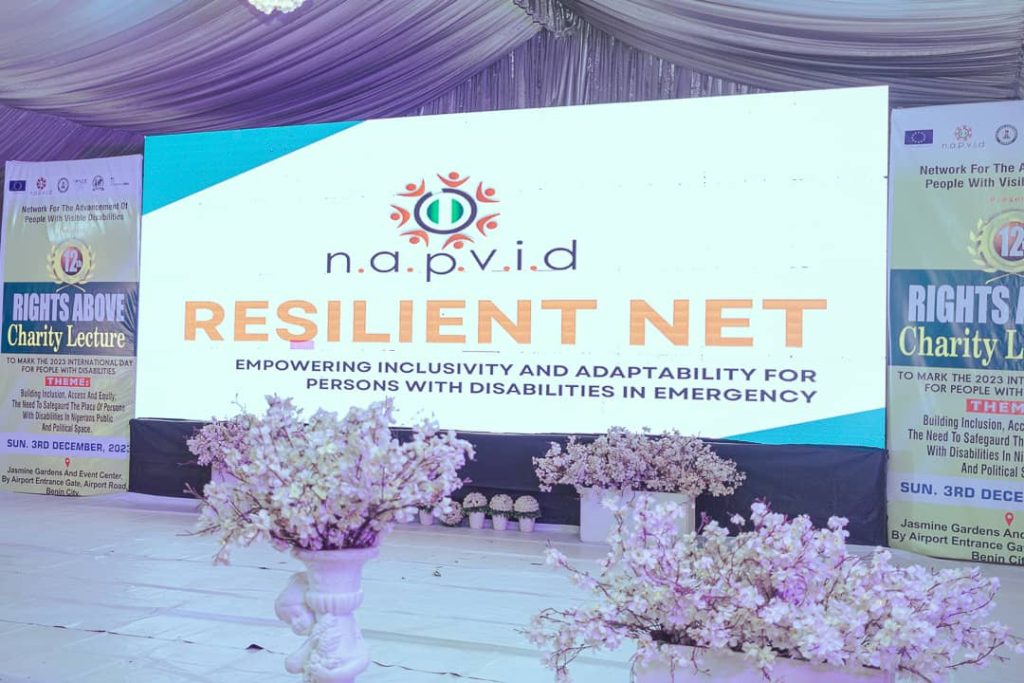
The ResillientNET Project – Empowering Persons with Disabilities in Edo State After Subsidy Removal was implemented with support from National Democratic Institute (NDI). The project harnessed rigorous research across three senatorial districts and key informant interviews to reveal how transport costs rose by up to 300%, unemployment soared, and mental health deteriorated among PWDs . Through a targeted two‑day advocacy workshop, leaders from the Edo Disability Forum (EDF) refined a powerful advocacy brief that translated these findings into actionable policy calls.
Engaging directly with high‑level officials, the Forum secured commitments to establish the Edo State Disability Commission by November 2024, implement subsidised wheelchair‑accessible transport by April 2024, and enrol unemployed PWDs in the Equity Health Insurance Scheme. Sustained media outreach via press conferences at NAPVID’s Benin City hall and radio slots on ITV Radio 92.3 amplified PWDs’ voices across print, broadcast, and social platforms, ensuring public accountability. As Edo State moves to inaugurate its Disability Commission and roll out inclusive services, ResillientNET stands as a blueprint for evidence‑driven, rights‑based advocacy in Nigeria and beyond bendelmirror.com.
Fuel Subsidy Removal Deepens Hardship for PWDs
When the federal government scrapped its long‑standing fuel subsidy in late 2023, pump prices and, by extension, transport fares soared across Edo State, leaving many Persons with Disabilities unable to afford trips to work, school, or medical appointments The Guardian Nigeria. Convener Melody Omosah Esq., sounded the alarm in March 2024, describing how rising costs had plunged PWDs into despair, with some reporting suicidal thoughts amid dwindling support the9jatrend.com. A comprehensive survey by ResillientNET confirmed that every respondent faced steeper costs for necessities and reduced social participation, underscoring how subsidy removal disproportionately impacted this vulnerable group.
ResillientNET’s strength lay in its mixed‑methods design. Sixty structured questionnaires gathered solid quantitative evidence on income loss, transport‑price spikes, and healthcare access, while three focus group discussions and key informant interviews with senior government officials added depth and nuance to the data. This rigorous approach produced hard numbers such as a 200–300% increase in transport costs and personal stories that illuminated the crisis PWDs faced daily.
Capacity Building: Uniting the Edo Disability Forum (EDF)
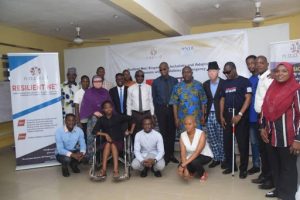
Armed with compelling evidence, ResillientNET convened a two‑day strategic workshop in late November 2023 to train EDF members in power‑mapping, community organising, and rights‑based messaging. Guided by veteran advocate Comrade Austin Osakue, representatives from diverse disability groups coauthored an advocacy brief that distilled complex findings into clear, achievable policy proposals. This unity of purpose empowered the Forum to present a cohesive front when engaging one‑on‑one with senior officials—from the Secretary to the State Government to the Transport Authority’s Managing Director etc.
Between February and March 2024, EDF delegations met directly with Governor Obaseki’s team, securing high‑profile pledges: the creation of the Edo State Disability Commission by November 2024, subsidised or even free wheelchair‑accessible transport services by April 2024, and enrollment of unemployed PWDs in the Equity Health Insurance Scheme the9jatrend.com Nigerian Observer. These promises were publicly reinforced when Melody Omosah Esq., called on the government to “match words with actions,” a refrain that resonated across local media The Guardian Nigeria.
Amplifying Voices: Media and Public Awareness
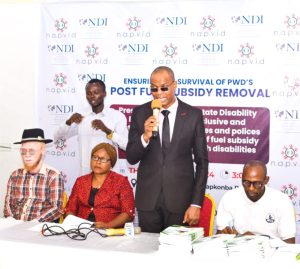
Recognizing that public support drives accountability, EDF staged two well‑attended press conferences in Benin City and secured live radio interviews on ITV Radio 92.3, ensuring PWDs’ experiences and demands remained prominent in the news cycle. Coverage by Channels Television, The Guardian, and grassroots outlets such as the 9jaTREND reinforced the message that true resilience arises when policy is shaped by those it affects.
As the ResillientNET Project draws to a close, the inauguration of the Edo State Disability Commission and the rollout of inclusive transport and health initiatives mark only the opening chapter. EDF continues to monitor government follow‑through, while NAPVID explores cross‑sector partnerships, including private enterprises and rural community groups, to ensure that policies translate into real‑world opportunities for PWDs. This collaborative, data‑driven model offers a replicable roadmap for advancing disability rights across Nigeria and beyond.
ResillientNET Project Close-out Event
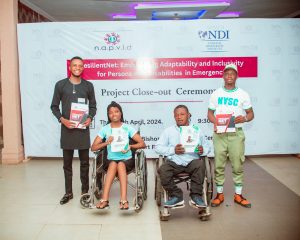
The ResilientNet project, spearheaded by NAPVID in collaboration with EDF and supported by NDI, culminated in a close-out ceremony on April 4, 2024, in Benin City. The event brought together key stakeholders, including Hon. Christabel Omo-Ekwu, Edo State Commissioner for Social Development and Gender Issues, and Mr. Bem Aga, Program Director of NDI.
Mr. Aga commended the initiative, stating that ResilientNet “spurred initiatives that aim to bolster the adaptability and well-being of PWDs during challenging times.” Commissioner Omo-Ekwu reaffirmed the government’s commitment to inclusive development for persons with disabilities. (As she later phrased it, “we can each work to create a society that values the rights of PWDs…”) The ceremony was at once a celebration of progress and a call to carry that momentum forward.
ResillientNET Project Recommendations
-
Establishment of Disability Commission: The Edo State government should expedite the constitution of the Edo State Commission for Persons with Disabilities to implement the Edo State Persons with Disabilities Law 2022 effectively.
-
Inclusive Policy Implementation: Political parties and government agencies must translate commitments into actionable policies, ensuring the inclusion of Persons With Disabilities in all aspects of governance and development.
-
Continuous Capacity Building: Sustain and expand skill acquisition programs for Persons With Disabilities to promote self-reliance and reduce unemployment within the community.
-
Infrastructure Development: Invest in accessible infrastructure across the state to facilitate the mobility and participation of Persons With Disabilities in societal activities.
-
Monitoring and Evaluation: Establish robust frameworks to monitor the implementation of disability-inclusive policies and programs, ensuring accountability and continuous improvement.
Conclusion
The ResilientNet project has significantly advanced the cause of persons with disabilities in Edo State, fostering empowerment, inclusivity, and resilience. It is imperative for all stakeholders—government bodies, civil society, and political actors—to build upon these achievements, translating commitments into tangible actions that uphold the rights and dignity of Persons With Disabilities.
Click here to read the full report…
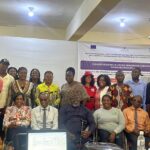
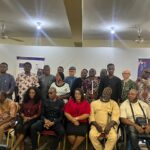

Nice report. Keep championing persons living with Disability cause
0dwci9
nice
8lboym
2y2r67
9jbtbo